
SYMPOSIUM
Saturday, March 21, 2020
Held in conjunction with the FotoFest Biennial 2020, this symposium brings together leading voices from art, music, theory, and writing for a series of conversations that examine key issues explored by the artists featured in the FotoFest Biennial central exhibition, African Cosmologies: Photography, Time, and the Other.
The symposium is presented in two sessions: a series of talks and a panel discussion focusing on the relationships between lens-based praxis, media histories, and transatlantic migration titled Imaging the Diaspora, and a series of lectures and conversations that connect concepts of time as it is understood in relation to racial politics with those notions of time that define music theory and musicology called Racial Time in Art and Music. Each session will be introduced by an invited moderator who will frame the panel discussion for the symposium participants and audience.
This event is free and open to the public.
SESSION 1 / 10AM–12:30PM / Brown Auditorium at the Museum of Fine Arts, Houston
Racial Time in Art and Music
PANELISTS: Jamal Cyrus, Christine Eyene, Jamire Williams; MODERATOR: Emily Areta
In his recently published book, Decolonising the Camera, Mark Sealy describes the concept of racial time stating, “racial time is different from the linear progression of dominant time . . . [it] does not tick along in a fashion that produces seconds, minutes, hours, and days. It works more like a cultural pulse in which the political conditions around it cause it to quicken or slow down.”
In this session, FotoFest Biennial 2020 artist Jamal Cyrus, renowned LA-based musician Jamire Williams, and Cameroonian-French curator, critic, and scholar Christine Eyene will discuss their work exploring issues pertaining to race and time through visual and audio-based forms of art making. Following their individual presentations, the guests will join moderator Emily Areta, a Houston-based Afro-Latin DJ and the FotoFest Literacy Through Photography Program Director, for a conversation that will further unpack the relationships between each of their work and the relationships between racial time as it appears in art history and as it lives in music.
The conversation will build off of Sealy’s definition of racial time to include broader cultural contexts beyond photography and the archive: in media, politics, and other forms of cultural production.
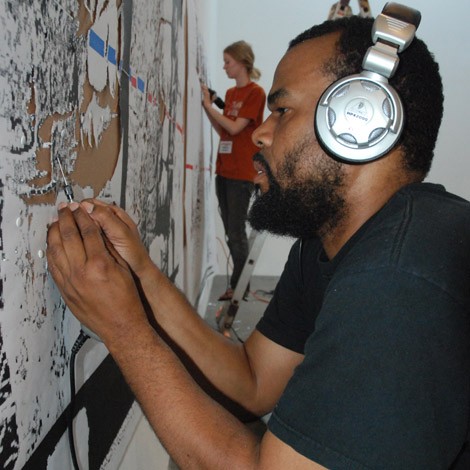
Jamal Cyrus
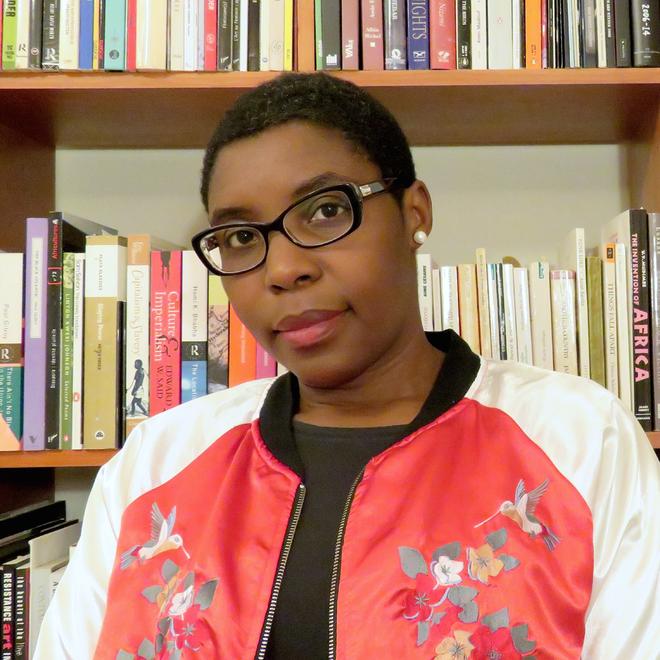
Christine Eyene
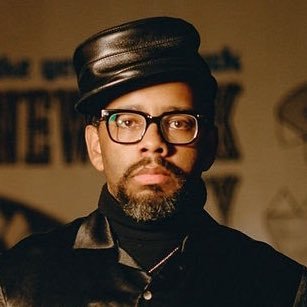
Jamire Williams
SESSION 2 / 2–4PM / Brown Auditorium at the Museum of Fine Arts, Houston
Imaging the Diaspora
PANELISTS: leo, Legacy Russell, and Zina Saro-Wiwa; MODERATOR: Natalie Zelt
Imaging the Diaspora is a panel discussion featuring FotoFest Biennial 2020 artists leo, and Zina Saro-Wiwa, curator Legacy Russell, and moderated by curator and researcher Natalie Zelt, focusing on the complicated relationships between the histories of photographic praxis, visual culture, and contemporary art, and issues related to the representation of the African diaspora. The title of this session is designed to be challenged by the invited guests.
Diaspora, as a concept, describes the continuous flow of people, culture, and ideas around the globe. To suggest that the incredibly complex and expansive nature of transnational movement is able to be represented visually in images, is to suggest that the subjects and sociocultural issues related to the African diaspora are not inherently resistant to the notion of singular referent. It also suggests that visibility is a privilege afforded to all those involved in the African diasporic tradition.
The invited speakers will discuss these notions as well as their own work on broadening the scope of what visibility is and how and for whom visibility serves.
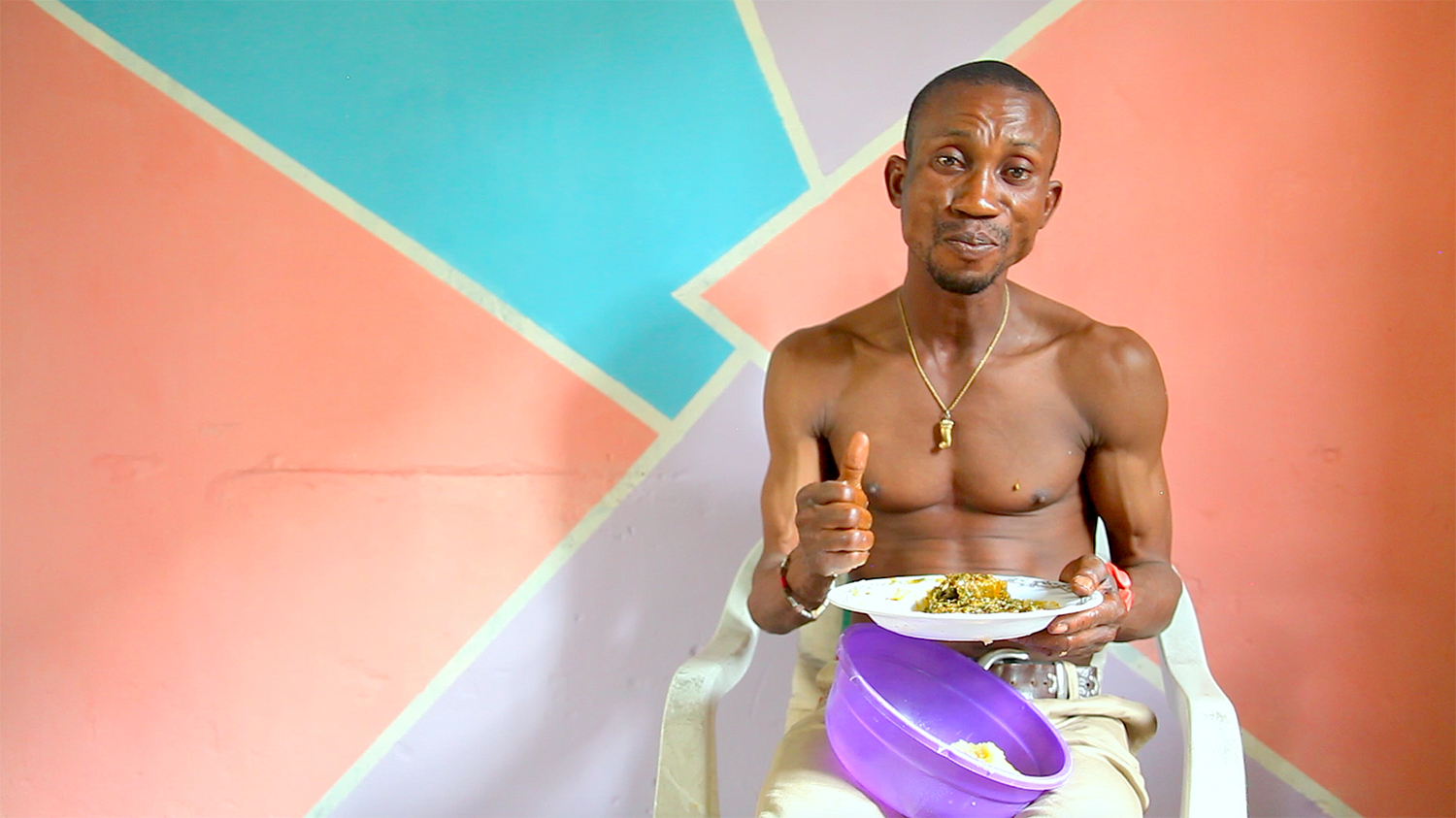
Zina Saro-Wiwa, Victor Eats Garri and Okro Soup with Goat Meat, from the video installationTable Manners, 2014–2016. Video still.
Courtesy of the artist and Walther Family Foundation
CLOSING LECTURE / 7–8:30PM / Location TBC
Felwine Sarr presents Afrotopia
Senegalese scholar, musician and writer Felwine Sarr will discuss Africa’s unique philosophies and notions of communal value and economy deeply rooted in its ancient traditions and landscape. In his book Afrotopia (2019), Sarr takes readers on a journey that is as much inward as outward, demanding an elevation of the collective consciousness.
Well-known for his groundbreaking report “The Restitution of African Cultural Heritage: Toward a New Relational Ethics,” Sarr teaches at the University of Gaston-Berger in Saint Louis, Senegal where he was previously dean of its Economics and Management department. His research focus on economic policies, the development economy, econometrics, epistemology, and the history of religious ideas. In addition to Afrotopia (Philippe Rey, 2016), he has published the meditative essay Dahij (Gallimard, 2009), the collection of short stories 105, rue Carnot, the philosophical text Méditations Africaines (Mémoire d’encrier, 2011) as well as the essay Habiter le monde and the collection Ishindenshin both published by Mémoire d’Encrier. Further, he cofounded the Laboratory for the Analysis of Societies and Powers/Africa-Diasporas (LASPAD) in Saint Louis, as well as the publishing company Jimsaan in Dakar. In 2016, he co-created with Achille Mbembe the annual Dakar and Saint Louis workshops Ateliers de la pensée, which sought to stimulate a “non-colonial” school of thought. Sarr also co-founded with Achille Mbembe the Ateliers de la pensée’s doctoral school.
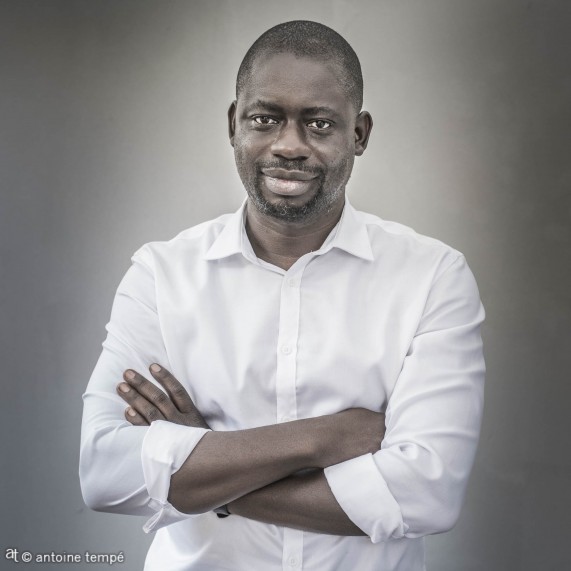
FOTOFEST
© 2023 FotoFest
STAY CONNECTED
